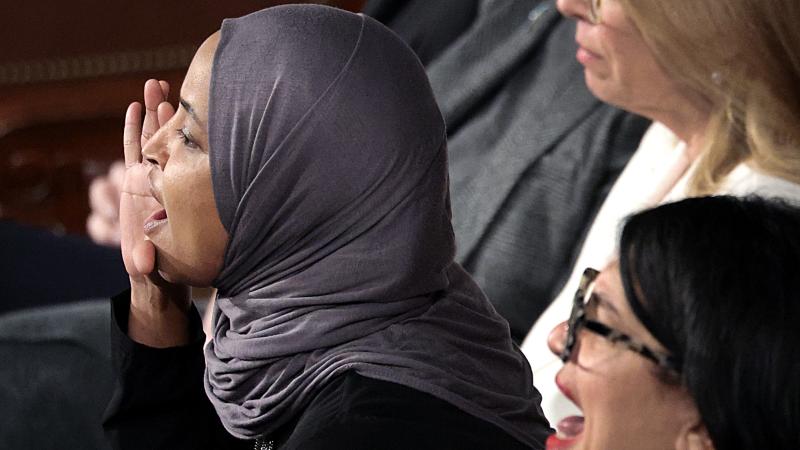GOP lawmaker floats mechanism to default spending to current levels to avert debt ceiling crises
"When I first ran my first campaign message, one of them was don't bankrupt America," said Rep. Warren Davidson. "And of course, if we don't change course, and spending, that's exactly what's going to happen."
With the nation stuck at its $31.38 trillion debt limit and the Department of the Treasury imposing "extraordinary measures" to keep the government running, one GOP lawmaker is floating a new proposal to default federal spending to current levels to avert recurring standoffs over raising the debt ceiling.
Democrats are demanding a vote on a clean debt ceiling increase, while House Republicans, in particular the party's conservative wing, hope to match any such increase with spending cuts. The White House has thus far rebuffed calls from House Speaker Kevin McCarthy to negotiate.
McCarthy is caught in a bind. He promised to address runaway government spending when making concessions to dissident House conservatives to win election as speaker. He also agreed to a rules package that gave the insurgents the tools to challenge his leadership should he renege on his pledge. With neither side showing a readiness to give ground on the issue, Congress appears headed into a game of fiscal chicken with the creditworthiness of the U.S. government at stake.
Speaking Friday on the "Just the News, No Noise" television show, Ohio Republican Rep. Warren Davidson cited the prolonged standoff over McCarthy's election as a preview of the current battle. It was "a big part of what the fight was in the first week," he said, forcing the party to examine its framing of the debt ceiling issue.
The debt ceiling, Davidson argued, is intended as a warning metric to prompt renewed discussion of budgetary policies should the government near its maximum. He likened the government's debt limit to that on a personal credit card.
If "you're deep in credit card debt," he reasoned, "you might get a higher credit card limit, but you don't really want to find a way to keep going deeper and deeper into debt. You want to get that breathing room so that you get your debt paid off, and you get out of trouble. That mindset is kind of gone ... Frankly, the most bipartisan thing in Washington, D.C., has been spending too much money or bankrupting America. We have to change course on that."
Davidson floated a potential solution in which the government would automatically default to existing spending levels should Congress fail to negotiate new terms.
His proposal "is a way to lock in a continuing resolution," he explained, "so that not only do we raise the debt ceiling, we also say, 'We don't want to shut the government down in the fall, but unless we can come to some agreement on a real spending bill, you can't do brinksmanship on that.' The status quo will be stay at the current spending level."
Davidson said that approach would be controversial in Washington, but would prompt regular Americans to push for modest reductions in spending.
"When I first ran," he recalled, "my first campaign message, one of them, was 'Don't bankrupt America.' And of course, if we don't change course on spending, that's exactly what's going to happen."
Davidson's continuing resolution approach appears to resemble a proposal that Kentucky Republican Rep. Thomas Massie made in September 2022, suggesting a continuing resolution that would automatically fund the government at 95% of the previous year's level, including a recurring spending cut that was absent from Davidson's plan.
"I would pass a continuing resolution to fund all of government at 95% of last year's level" as the default spending path, Massie told the "Just the News, No Noise" television show at the time. "But if those negotiations grind down, then CNN cannot put down a countdown timer that says the government is going to shut down on September 30."














